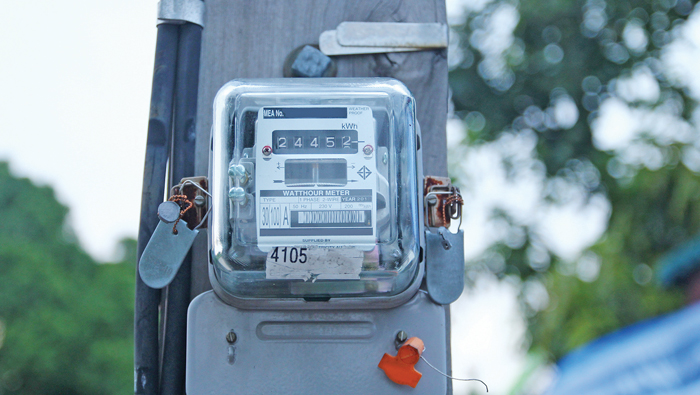
Muscat: Electricity bills in Oman could soon be even cheaper after two of the country’s biggest power suppliers announced plans to privatise.
Nama Holding has announced that both Muscat Electricity Distribution Company (MEDC), and Oman Electricity Transmission Company (OETC) will be partially privatised, and in addition to providing cheaper electricity to Oman’s residents and citizens, company bosses and economists say issues faced by customers could also be resolved in a faster and more efficient manner.
Nama intends to sell up to 49 per cent of its shares in OETC and 70 per cent of its shares in Muscat Electricity Distribution Company. So far, the company has said that it has received 11 applications for OETC, and 14 for MEDC.
Promote competition
Omar Al Wahaibi, the CEO of Nama said: “Through this process, we hope to develop the efficiency of service in the sector and to promote competition. We want to attract the latest and most advanced technology, which will be reflected in improving the service of subscribers and the efficiency of the use of resources thereby reducing the cost per unit of electricity supplied over time.
Consolidate its position
“Nama Holding attaches great importance to the process of privatisation of the group’s electricity transmission and distribution companies, while striving to continue to empower the role of the electricity sector in the Omani economy and to consolidate its position in the international markets,” he added.
Ahmed Al Hooti, a board member and head of the Economic Committee and Studies at the Oman Chamber of Commerce and Industry, said that the decision for privatisation was taken with two main objectives in mind: cheaper, more affordable electricity, and more efficient services to both householders and employers.
“We know that one of the reasons is to reduce costs,” he told Times of Oman.
“These companies give better returns to the shareholders, and also help those who are looking for electricity, as well as offering cheaper electricity for new consumers. We also want a better customer service system one that that is faster and cheaper. If the privatisation makes all of this available, it will help all the sectors to expand, creating more jobs in the Sultanate.”
Al Hooti added, “There has to be something positive, especially in the areas like Duqm, where people are looking to invest, then discover the lack of electricity. Nama is trying to find solutions to all of these problems, and to give more power to the companies to solve the issues they have and to offer better opportunities for investors.
He also said that both the public and private sectors were working together to help find solutions to problems customers faced in getting regular electricity and solving issues they faced.
In addition to MEDC and OETC, Nama also has plans to partially privatise its other companies. It intends to sell 70 percent of its share in Dhofar Power Company, Majan Electricity Company and Mazoon Electricity Company. The bidding processes for Muscat Electricity Distribution Company and Oman Electricity Transmission Company were launched in October 2018, while the bidding processes for the other three will begin in the second quarter of 2019. 25 expressions of interest have been received so far, while 90 investors located worldwide have been contacted.
Mansoor Al Hinai, Executive Vice President, Distribution and Supply at Nama Group, said, “A large group of companies and institutions have submitted pre-qualification offers to participate in the privatisation process for these two companies, including 14 applications for Muscat Electricity Distribution Company and 11 applications for Oman Electricity Transmission Company.”
In addition, Ramanuj Venkatesh, a financial analyst, added that privatisation would lead to a more efficient and more streamlined method of working.
“Companies that undergo privatisation have a good track record of providing quality service to customers, and ensuring that there is prompt billing and recovery of payments when required. At the same time, they have a good customer base when it comes to ensuring electricity is provided promptly and at reasonable rates with reasonable tariffs. It is well-regulated when it is privatised. Consolidation is also better done when privatisation of companies happen.”
Residents in Oman were also happy with the news. Suresh Kumar, an Indian expat said, “what we would appreciate is affordable electricity and quick service to handle any problems we face. If privatisation can meet this, then we will be happy.”